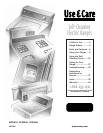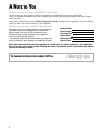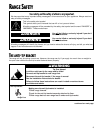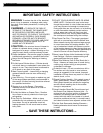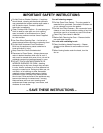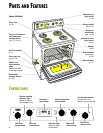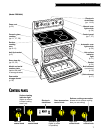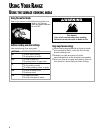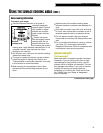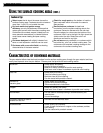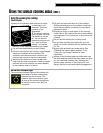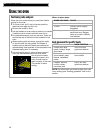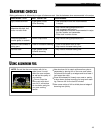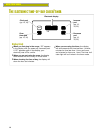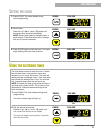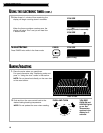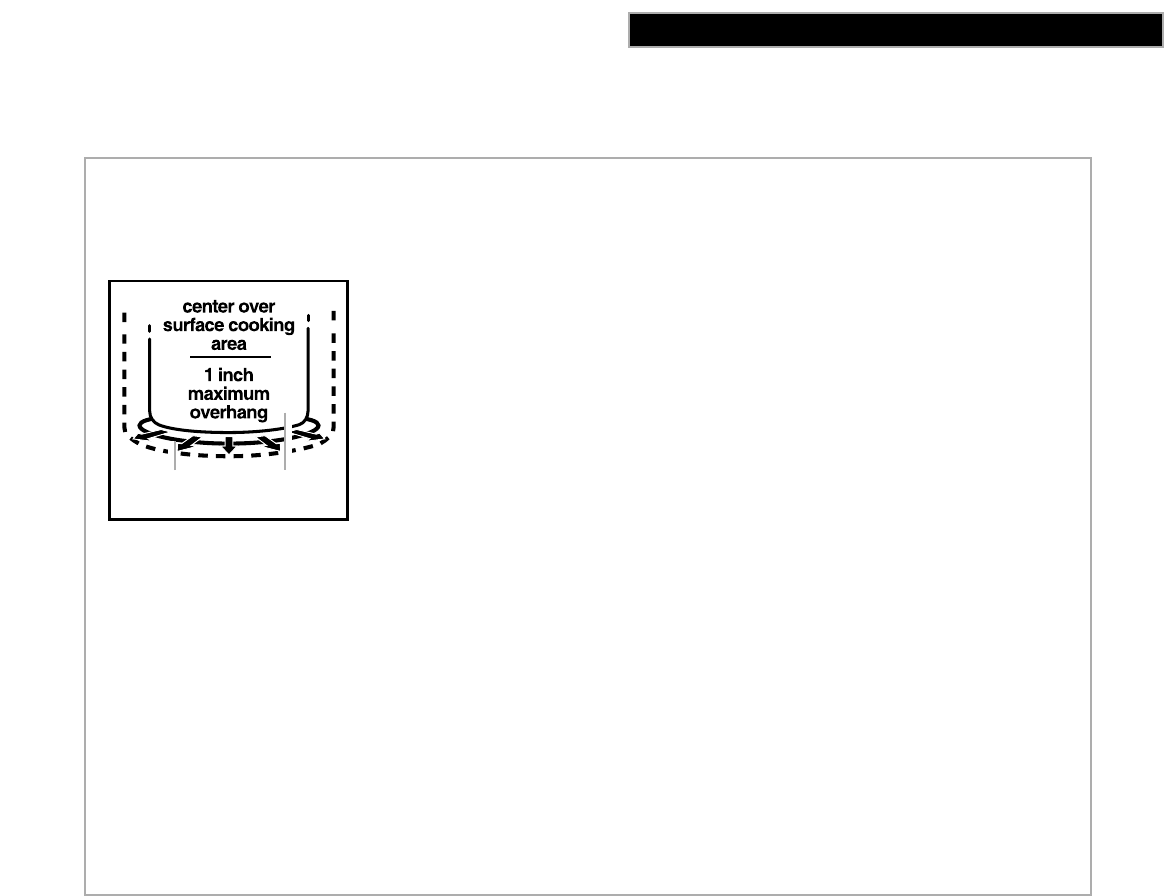
9
USING THE SURFACE COOKING AREAS (CONT.)
USING YOUR RANGE
Home canning information
To protect your range:
•
Use flat-bottomed canners on all types of
cooktops, especially
ceramic glass. Canners
with rippled or ridged
bottoms do not allow
good contact with the
surface.
•
Center the canner
over the largest surface
cooking area. Do not
extend more than one
inch outside the surface
cooking area. Large diameter canners/pans, if not
centered correctly, trap heat and can cause
damage to the cooktop.
•
Do not place your canner on two surface cooking
areas at the same time.
•
The type of material the canner is made of deter-
mines the length of heating time. Refer to the
“Characteristics of cookware materials” chart later
in this section for more information.
•
When canning for long periods of time, allow
elements and the surrounding surfaces to cool
down.
1" 1"
Pan
Surface
cooking area
•
Alternate use of the surface cooking areas
between batches or prepare small batches at a
time.
•
Start with hot water, cover with a lid, and bring
to a boil; then reduce heat to maintain a boil or
required pressure levels in a pressure canner.
•
On coil element model, keep your reflector
bowls clean so that they will always reflect heat
well.
•
For up-to-date information on canning, contact
your local U.S. Government Agricultural
Department Extension Office or companies who
manufacture home canning products.
Optional canning kit
(Coil element model)
Most water-bath or pressure canners have large
diameters. If you do canning with them at high
heat settings for long periods of time, you can
shorten the life of regular coil elements. This can
also damage the cooktop. If you plan to use the
cooktop for canning, we recommend the
installation of a Canning Kit. Order the kit (Part
No. 242905) from your dealer or designated
service company.
continued on next page



